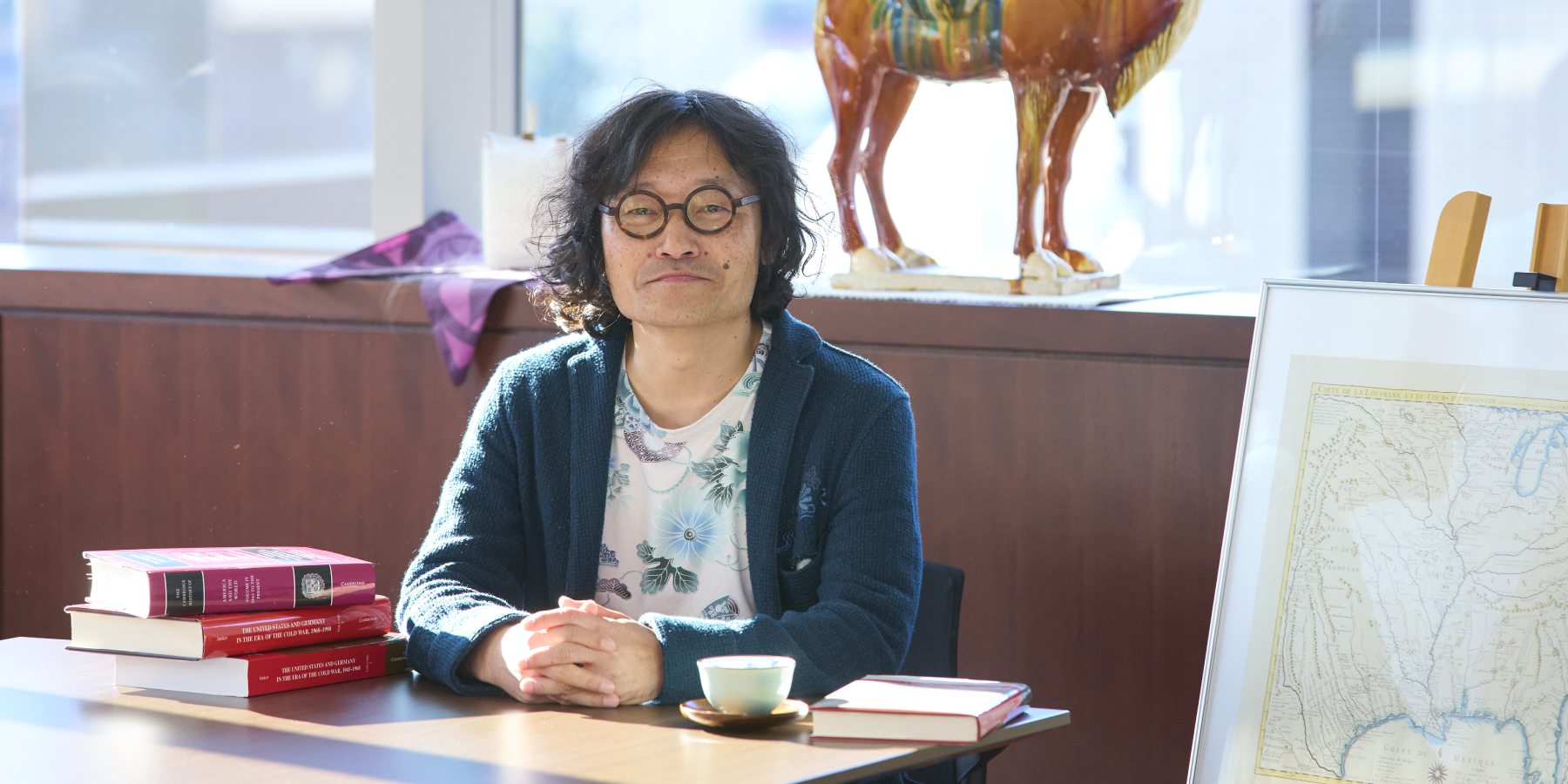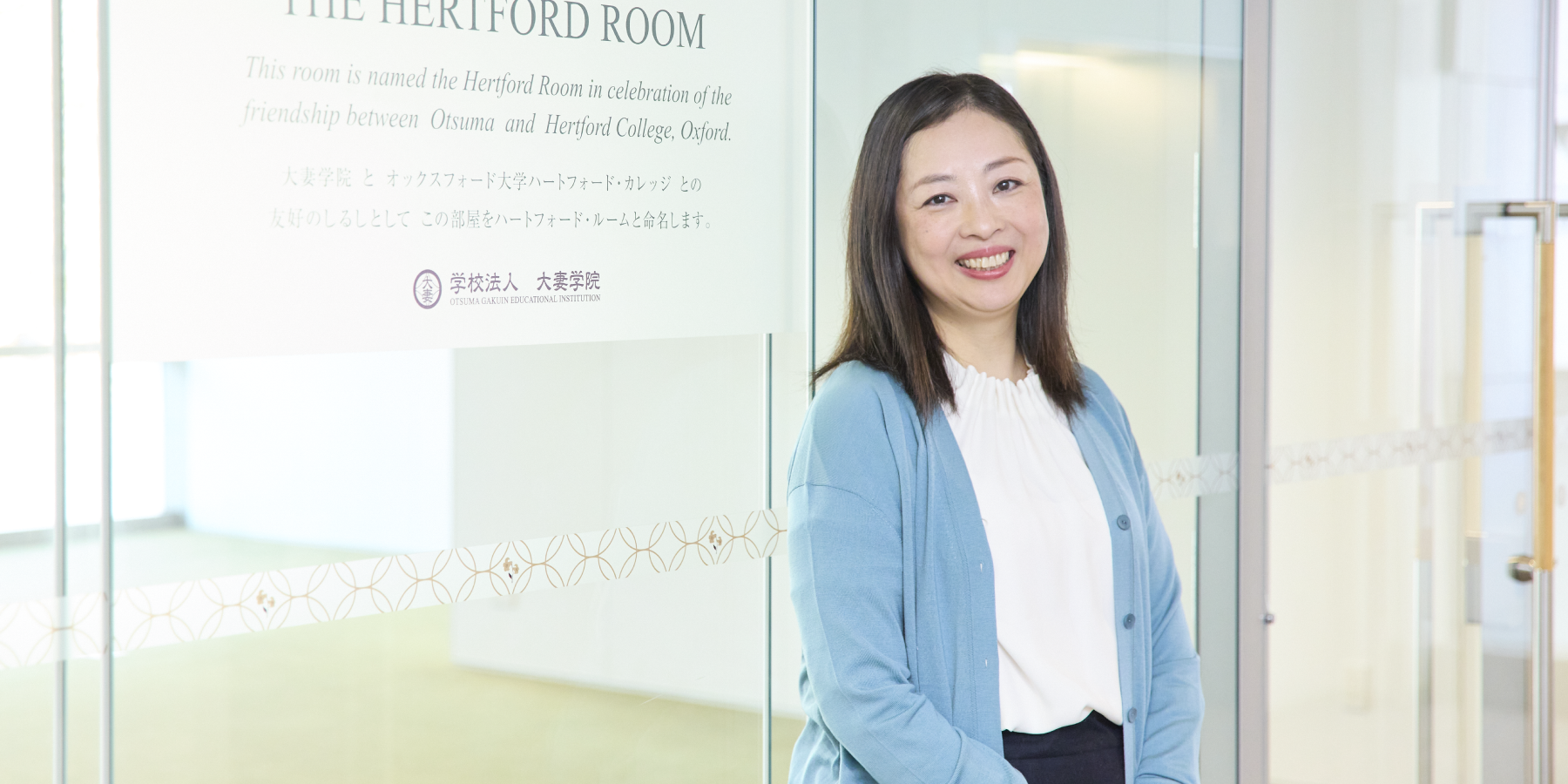menu
The Faculty of Comparative Culture believes that comparing and understanding the differences between Japanese culture and cultures from around the world, can help gradually expand one's view of the world – and our place in it - something that may have been previously taken for granted.
The Faculty of Comparative Culture studies culture through a variety of lenses, such as art, literature, history, thought, international relations and language. This means we learn to see and think about things in many different ways.
Through such learning, our view of the world changes and grows.
It is a way of changing yourself and maturing as a person.
The Department of Comparative Culture has the largest number of teachers and students at Otsuma Women's University. I would like you to experience a variety of teachers, students and different ways of thinking.
If you haven't decided what you want to do yet, that's fine… as you learn and grow, you can discover your future-self at the Faculty of Comparative Culture.
Dean of the Faculty of Comparative Culture,Sato Minoru

I specialise in British history, and have studied in Japan and abroad in London and Oxford in the UK, but when I was a university student, I was unsure of my thesis topic when one of my teachers told me, ‘In history, anything can be a topic’. It was a comment that made me think again about what kind of things I was interested in, and to get rid of the boundaries of ‘this is how it has to be’.
Now, more than ten years after arriving at the Department of Comparative Culture, I strongly believe that the study of comparative culture is what ‘anything can be a theme’.
This is because comparative culture is an interdisciplinary field that finds explores the differences, similarities and connections between different things.
Whatever you have liked since childhood, whatever you have always wondered about, whatever you have always longed to do, anything can lead to a research theme. The list of thesis titles in the electronic version of Calliope, the bulletin of the Society for Comparative Culture (link on this homepage), shows how diverse the range of topics can be. If you are not interested in something, think carefully about what you like during your university life. That's where learning starts.
I think it is also important to talk about your own themes and interests with other people. The Department of Comparative Culture uses many small-group classes, including seminars, where you can deepen your learning through dialogue with other students and teachers. I would like to support you so that you can discover your passion, find an interesting theme, and once you have found that I would like to support you.
Department of Comparative Culture Department Ueno Mio
